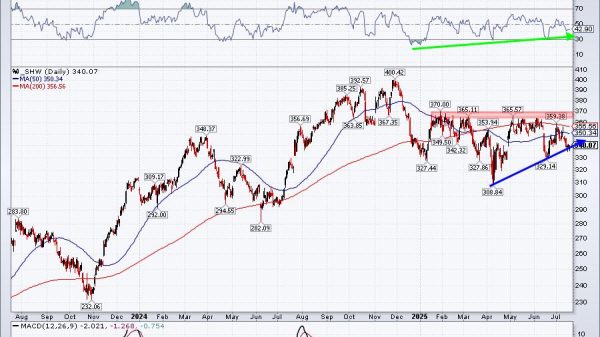The topic of eSIM and remote SIM provisioning has been at the forefront of many of the discussions related to cellular-based IoT connectivity in recent years. Typically the focus has been on in-field provisioning, but in the last few months a new approach has started to emerge, in the form of In-Factory Profile Provisioning (IFPP) involving the secure loading of mobile network SIM profiles during the manufacturing and/or order fulfilment process. In February, Transforma Insights and Kigen published a Position Paper ‘In-Factory Profile Provisioning (IFPP): new eSIM approach drives profitability and improves product performance in connected electronics manufacturing’ which examines the concept of IFPP as an emerging approach to remote SIM provisioning for IoT connected devices. In this article Matt Hatton explores the seven key reasons why manufacturers of connected devices may want to make use of IFPP.
What is IFPP?
Before we get onto the reasons why companies may wish to make use of In-Factory Profile Provisioning it is worth briefly explaining what it is. IFPP is an extension to the idea of remote SIM provisioning (RSP) which has been quite widely discussed. With the increasing prevalence of soldered eSIM chips and in future iSIMs, as well as increasingly strict rules about network localisation in many countries, it was necessary to develop the capability to change the SIM profile through a mechanism other than physically swapping out SIM cards. That mechanism is Remote SIM Provisioning (RSP), i.e. over-the-air switching of profiles on the SIM card without needing to access it physically. As well as some non-standard and pre-standard approaches, the GSM Association developed a set of standards for the eSIM/RSP architecture: SGP.02 (“M2M”) introduced in 2014, SGP.22 (“Consumer”) in 2016, and now SGP.32 (“IoT”) which was introduced in 2023 and with some final standardisation to be completed.
However, that isn’t the end of the story. There is another scenario in which SIM provisioning might be more effectively supported: to set the initial SIM profile(s) during the manufacturing process. This In-Factory Profile Provisioning (IFPP) is aimed specifically at a particular type of use case: the secure loading of SIM profiles during the manufacturing and/or order fulfilment process based on characteristics such as the device capabilities or the geographic location into which it is expected to be deployed. And the GSM Association has also been active here, working on the SGP.41 specifications for an IFPP standard.
The way in which IFPP works is to allow the manufacturer to hold a digital inventory of Mobile Network Operator (MNO) eSIM profiles and integrate them by way of a profile loader in the manufacturing line, which will apply the next appropriate profile according to pre-established parameters. Typically it will be flashed to the device at the same time as firmware/software loading or when firmware is updated during personalization before the device ships.
Why use IFPP?
As part of the aforementioned Position Paper, Transforma Insights identified seven key characteristics of IFPP that make it stand out as particularly beneficial for manufacturers of connected devices. These are benefits both from IFPP specifically and remote SIM provisioning more broadly.
1. Inbound logistics
Historically, manufacturers needed to maintain an inventory of SIM cards, which may have a lead time stretching into months. Customer orders could not be fulfilled until SIM cards were delivered to the factory, leading to potential delays. In many cases the manufacturer would have to pay for the SIM cards before they arrived in the factory. With IFPP, SIM profiles are used only at the point at which they are required and they can be deployed instantly.
2. Manufacturing process time
Removing the need to manually handle and fit a plastic SIM card into the device eliminates a mechanical step from the manufacturing process, reducing labour cost and speeding up production, which is clearly critical in volume manufacturing.
3. Manufacturing flexibility
Production lines can be adapted automatically and instantaneously to different requirements for SIM profiles, simply by changing the parameters sent to the profile loader. In some cases, manufacturers opt to create generic stock to which a profile is downloaded once the order is received, typically alongside the buyer’s firmware variant. IFPP gives the flexibility to use either approach.
4. Outbound logistics
The use of IFPP removes the need to support multiple SKUs, making distribution logistics more efficient. A manufacturer might easily have 2-3 profiles from major operators for a product in North America, but in Europe, this is 26-30 due to having one operator per country. IFPP simplifies this as production runs can be managed to ensure the right connectivity is selected and meets all operator testing requirements within the process time. We should note that full flexibility is delivered through in-field provisioning, i.e. changing the SIM profile after deployment. IFPP can be deployed in conjunction with in-field provisioning.
5. Out-of-the-box working
Because the device has been pre-configured with the correct profile at time of manufacturing it will automatically attach to the right network rather than having to spin through a bootstrap profile and localising. This provides an improved service for the customer and reduces some of the overhead for MNOs/MVNOs because there is no longer a requirement to support records for short-term bootstrap profiles on the Home Subscriber Server (HSS).
6. Power saving
The power saving benefits are particularly important for many use cases, specifically those devices that rely on lifetime battery power. The power requirement of SIM provisioning – in terms of the volume of data and authentication messages – can use up quite a significant portion of a battery; up to 15% in some cases. This can have a significant impact on the lifespan of devices that had been optimised to be ultra-efficient in their frequency and volume of data delivery. This is particularly relevant for applications using Low Power Wide Area (LPWA) technologies such as NB-IoT, which are typically highly power optimised, for instance in smart gas and water metering.
7. Sustainability
The use of plastic SIM cards involves the production of quite large quantities of waste plastic. At the point of production card bodies are discarded in large numbers. Furthermore, if any network change might need to be initiated, the SIM related to the previous network would be discarded and replaced with a new physical SIM card. There is no such waste with eSIM.
The post In-Factory Profile Provisioning (IFPP): 7 reasons why it makes sense for connected device makers appeared first on IoT Business News.

























